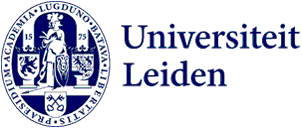Research in the media
How can you ensure that your research hits the headlines? How can you bring your research output, such as PhD research or a publication, to the attention of the public?
Spotlight on a publication
If you have published a book or an article in an academic journal, inform the scientific communication adviser or your faculty’s communication department as soon as possible (after your work has been accepted) to discuss how to bring your publication to the attention of the public. This can be done through different channels: news articles on the University website, social media, the weekly newsletter and press releases. The press releases will be issued by the scientific communication adviser as and when required.
Inaugural lecture
The news team issues a press release before all inaugural lectures, making sure they contact the professor well in advance. This press release notifies journalists and the public of the inaugural lecture and communicates to a broad audience bout the new expertise that the University now has in house.
PhD defence
No later than four weeks before the date of the defence, the PhD candidate submits a short public summary of their dissertation via an online form. This summary is published in the agenda item concerning the PhD defence on the Leiden University website. The website editors decide whether they wish to publicise the results of the PhD research to a wider audience, for example by publishing a press release and/or bringing this to the attention of the press. This depends on the newsworthiness of the research, and can only be done in consultation with the PhD candidate.
NWO or EU grant
If you have been awarded an NWO or EU grant, inform the scientific communication adviser or your faculty’s communication department as soon as possible to discuss how to bring this to the attention of the public.
Can journalists find you?
Make sure that your profile page is complete so that journalists who are looking for an expert to comment on current affairs can find you. This means using the right keywords in Dutch and English to ensure you are found through the university website and Google. You can also link related pages, such as news articles, agenda items, research projects, programme pages and dossiers. Contact your faculty’s communication department to edit your profile page.
Research dossiers
We use research dossiers to draw attention to areas of research in which the University has a longstanding tradition and which tie in with current affairs. The deans of the faculties decide on the subjects of these dossiers.
